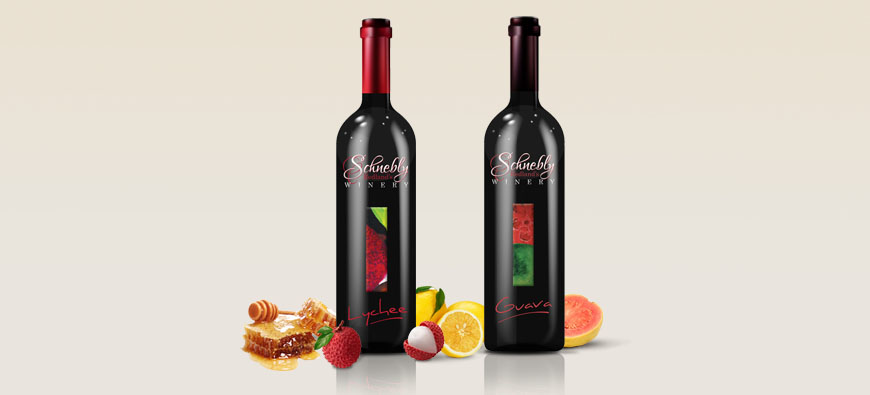Menu

Fruit wines are slowly but surely growing in popularity at a rapid pace. Some people still believe that fruit wine is not really wine, although technically, of course, it is. Although the term “wine” is conventionally used to refer to the fermented beverage made of grapes, the process of making fruit wine—allowing yeast to feed on the sugars in fruit and become alcohol—is the same.
Depending on the fruit used, fruit wine can produce red wines and white wines, and contrary to popular belief, not all of them are sweet.
So why are fruit wines becoming increasingly popular? There are several reasons.
It is a wide misconception that all fruit wines are sweet, and easy to make, which makes them cheap. Making a good fruit wine is actually not easy, since acidity and sugar needs to be added to the fruits in a perfect balance to make a good, tasty wine.
Fruit wines can, of course, be sweet for all dessert wine lovers, but they can also be dry or off-dry, making a perfect table wine or sparkling wine.
Of course, with more variety in the fruits, the variety of flavors is endless, and there is something to delight even the most sophisticated palates.
Growing grapes, especially good grapes, depends very much on the climate. There are regions, like South Florida for example, its mostly humid conditions aren’t conducive to maintaining healthy grapes, which thrive in more temperate weather.
Because of the seasonal nature of the wide variety of fruits available, different fruit wines also match well with different times of the year. Summer fruits such as strawberry and raspberry make a refreshing fruit wine choice in the warmer months, moving on to damson and sloe wine in autumn, or even festive cranberry wines for the Christmas months.
The climate in South Florida is absolutely perfect throughout the year to grow exotic fruits like guava, lychees, and mangos, making it a perfect region for exotic fruit wines. Such is the case of Schnebly Winery, where founders Peter and Denisse Schnebly took to re-defining the word “winery,” one tropical fruit at a time. One of Peter’s friends told him he could make wine from exotic fruits by using sugar and acidity, and the rest is history.
Just like with grapes, there are fruits endemic from every region, and some wineries really delve into their specialty to create an even more special wine. When you drink a fruit wine, you are sampling the best fruit an area or region has to offer, from citrus fruits to tropical varieties to berries. For example, apple wine is a very important tradition in Denmark, as is plum wine in Japan, but there are few American regions that produce one particular type of fruit wine. However, a few areas boast enough specialization to warrant recognition.
Michigan has cherries, and Hawaii has pineapples, and they make special wines with these fruits. An area that deserves recognition, though, is the Redlands in Miami. An area so rich, with red soil, able to grow even the most exotic fruits.
Peter Schnebly started using the Redland’s fertile resources to his advantage by growing tropical fruits. Because of Miami’s steady weather, Schnebly has the ability to grow different fruits that simply do not grow anywhere else in the United States.
At first, the wines made from guava, avocado, carambola, mango and lychee seemed more like novelty items — something to get from Miami for relatives: “greetings from the Sunshine State!”. But soon, they started winning awards, gaining serious recognition.
See our Exotic Fruit Wine collection
The “drink local” movement goes nicely with fruit wines. These offerings allow producers to produce locally, from their orchards, making these wines almost organic and a special staple from their area.
People nowadays enjoy the “organic” and “homegrown” aspect of these wines, which obviously creates more of a connection with consumers, and thus, they keep coming back for more. Most of these wineries sources local and fresh produce with ripeness levels that require little additional sweetening and a lot of them grow their own.
Now you know! It definitely is time to try something new in this beautiful world of exotic fruit wines.
Wine not!
30205 SW 217th Ave
Homestead Florida 33030
Email: info@schneblywinery.com
T: (305) 242-1224
Monday – Thursday: Noon – 5pm
Friday: 11am – Close
Saturday: 11am – Close
Sunday: 11am – 8pm